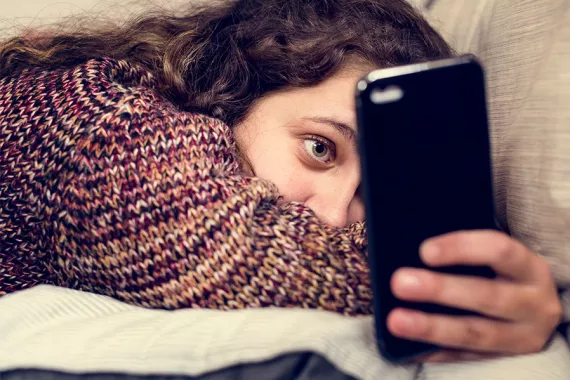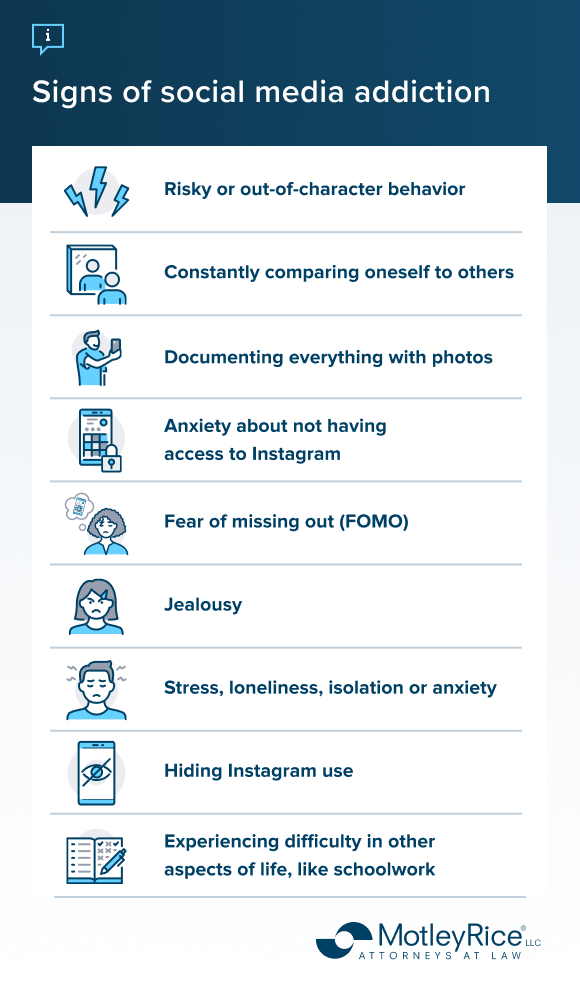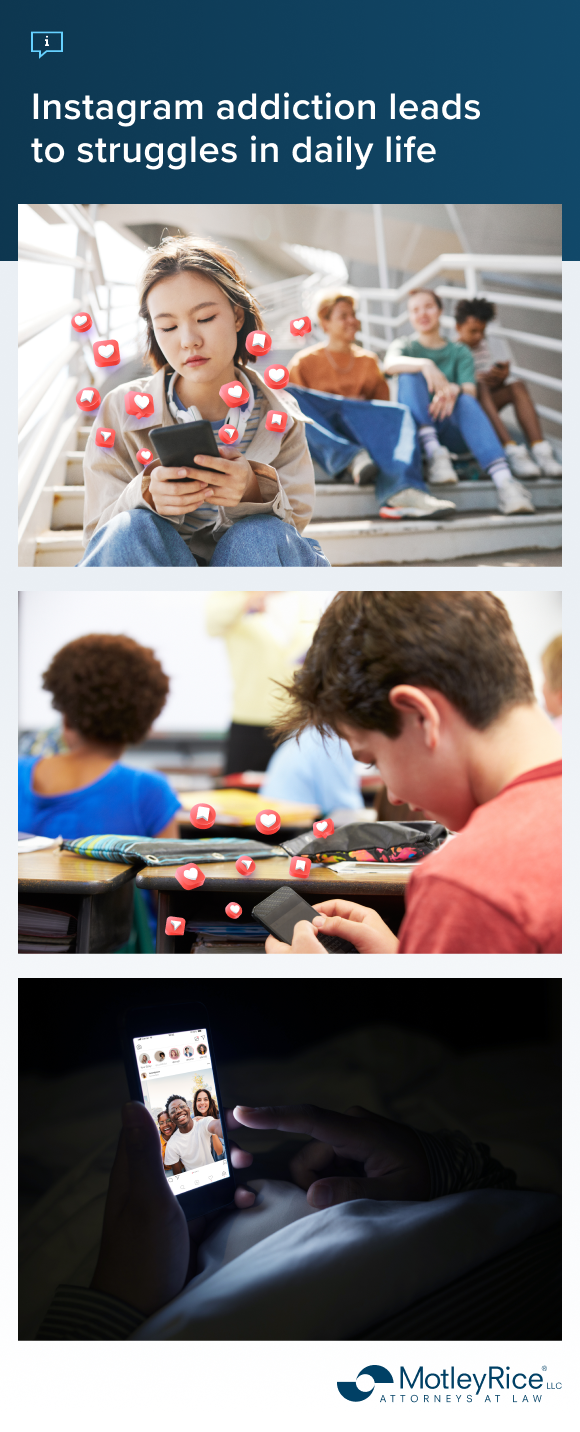Instagram’s design may have serious mental health impacts on young users, such as anxiety, depression and sleep deprivation.
Does Instagram cause anxiety?
Using Instagram may contribute to or cause anxiety. Several studies have linked Instagram use to a rise in depressive feelings and symptoms. Researchers have found a few common factors that may lead to Instagram anxiety:
- Activity type: One study found teens were more likely to experience depression and anxiety if they had multiple accounts or spent more time checking notifications.
- Social media overuse: Adolescents who experience problematic social media use are more likely to experience anxiety and depressive symptoms.
- Time spent on the app: Studies have found a link between increased social media use and anxiety. Researchers who surveyed teens in Canada, Europe and China also found a link between social media use and depression. Researchers also found psychological distress was linked to spending two or more hours a day on social media.
Internal research from Meta found:
- Social comparison fostered through Instagram could compound feelings of anxiety among teens.
- Teens believe Meta’s products harm mental health. A leaked internal presentation slide discussed how teens “blame Instagram for increases in the rate of anxiety.” The report notes that “this reaction was unprompted and consistent across all groups.”
Does Instagram cause low self-esteem?
Problematic Instagram use may lead to lower self-esteem, especially in teens. Body image is an important aspect of self-esteem that may be negatively impacted by social media.
According to an internal Instagram report shared by a former employee:
- Young women often view and describe themselves differently before and after using Instagram. Their self-perceptions changed from “multi-dimensional” and “centered” to “dark,” “low esteem” and “anxious.”
- About 40% of teens have felt they were “not attractive” and attributed this thought to starting on Instagram.
- About 20% of teens said Instagram made them feel worse about themselves.
- Categories of harm from using Instagram included social comparison and pressure.
Negative self-perceptions can cause eating disorders, body dysmorphia, body dissatisfaction, depression and loneliness.
Does Instagram impact sleep?
Instagram can impact sleep through compulsive use and disruptive notifications. The app’s notifications are intentionally vague to pique interest. For example, a teenager might get a notification that their friend commented on their photo, but the notification may not say what the comment is.
When these notifications come at night, they can interrupt a user’s sleep or wind-down period. A teenager’s developmental state means they often lack the impulse control to ignore the notifications. As a result, it can be easy for young adults to get drawn back online when they should be sleeping.
Instagram’s continuous scroll and replenishing Explore features draw kids into a flow state. A social media flow state means the user is fully absorbed into the app. The flow state can often lead to spending a lot of time on the platform without interruptions.
Does Instagram cause depression?
Yes, Instagram has been linked to depression by internal Meta studies, external researchers and anecdotal evidence. For example, internal Meta research found teens blame Instagram for increases in depression, even without being asked directly about it.
Further Meta research found that the app’s addictive nature can cause “a series of emotions that in many ways mimic stages of grief.” The research concluded that these emotions could lead to poor mental health outcomes, such as depression. Instagram depression is just one of the possible harms mentioned in a lawsuit for Instagram mental health harms.
Learn more about social media and depression.
Instagram and eating disorders
Instagram has also been connected to higher incidences of eating disorders, including anorexia. One study of about 1,000 seventh and eighth grade students found the following:
- Boys with Instagram accounts were significantly more likely to have engaged in disordered eating behaviors.
- Girls who used Instagram several times a day were more likely to score highly in measurements of disordered eating mindsets.
Eating disorders are a form of self-harm and should not be taken lightly. More research is needed to determine the exact link between eating disorders like anorexia and Instagram. However, eating disorders are a common injury in social media lawsuits.






